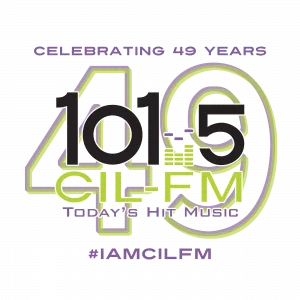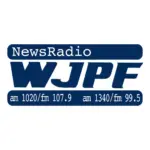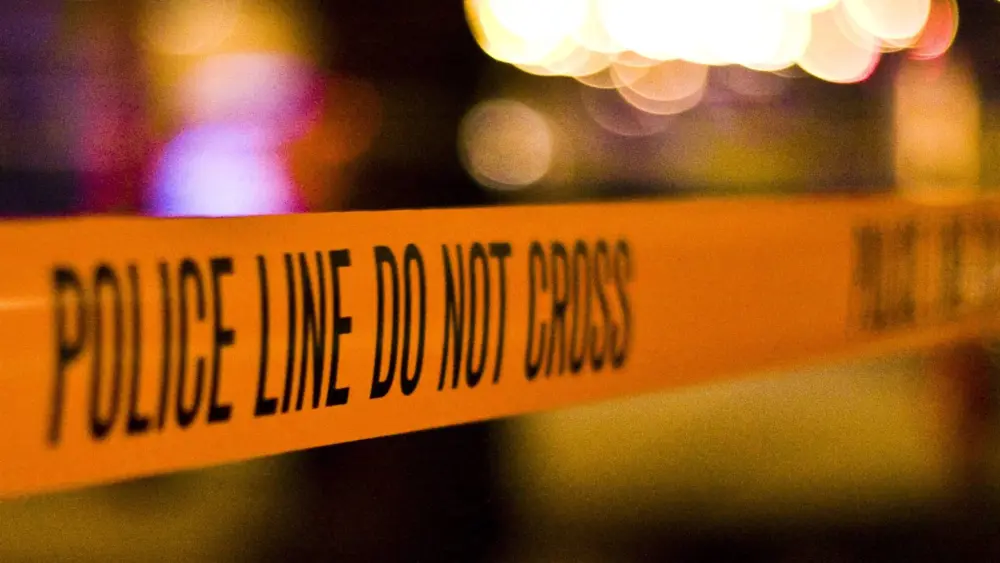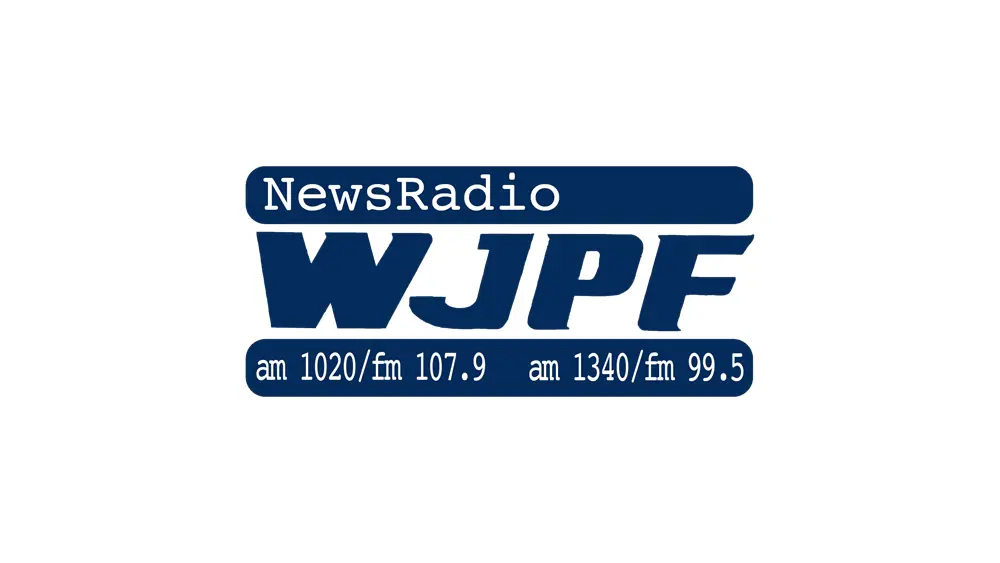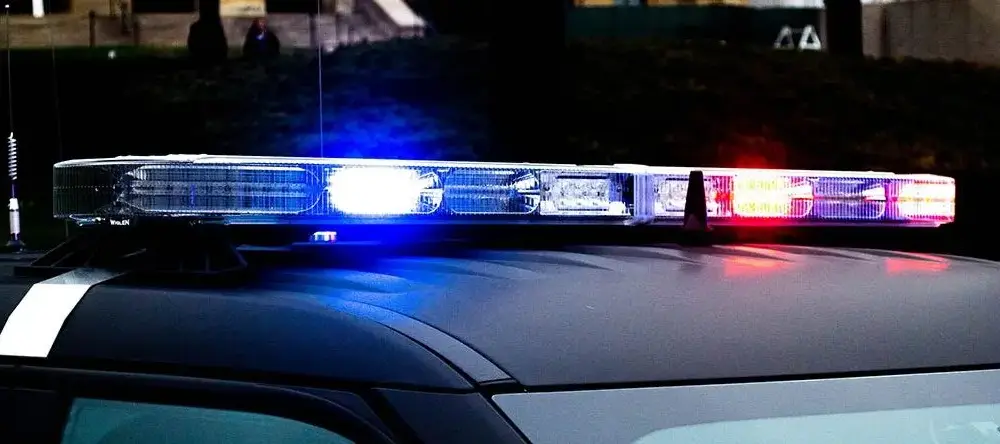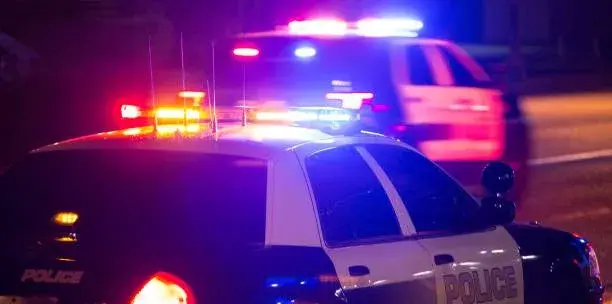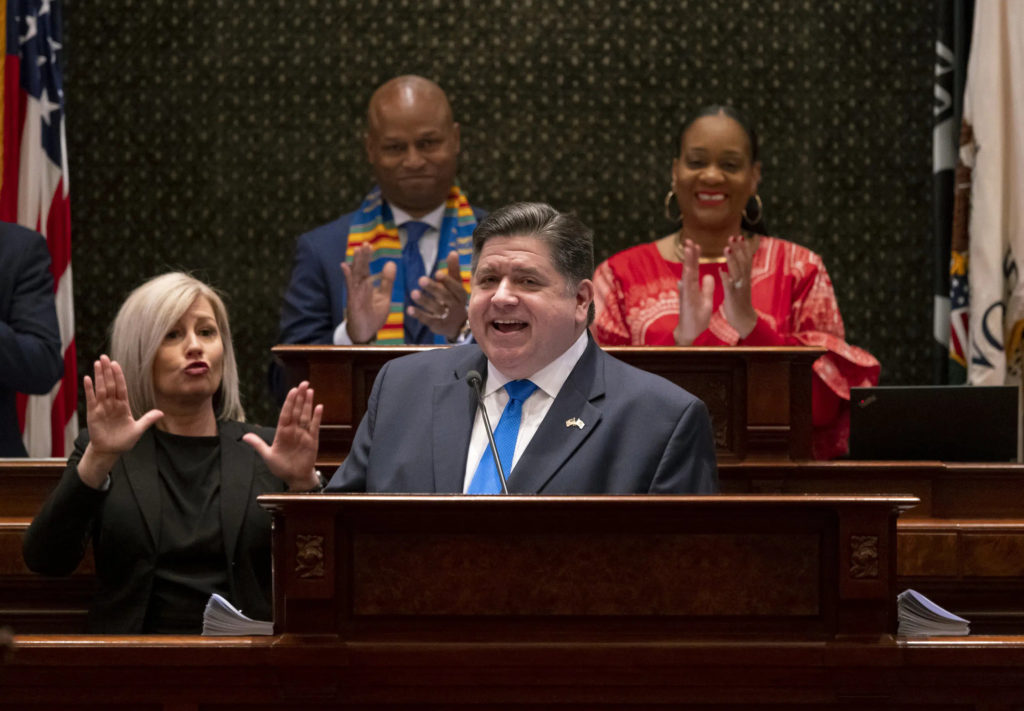
SPRINGFIELD, Ill. (AP) — Gov. J.B. Pritzker called Wednesday for making preschool available to every 3- and 4-year-old in Illinois within four years, arguing that the state’s improved financial picture allows it to not only invest in early education but also take on such problems as homelessness and hunger.
“Smart Start Illinois,” the name given to the preschool program, makes good on a Pritzker campaign promise last year when he easily won a second term amid speculation of a future White House run. It would start with a $440 million investment to bring 5,000 additional children into the program this fall.
The program’s introduction followed quickly on the governor’s boasts of tens of billions of dollars in debt elimination he and lawmakers accomplished in his first term after a disastrous two-year budget stalemate between Democrats who control the Legislature and his Republican predecessor.
“Today, I ask you to partner with me once again — this time on the long-term investment that has the greatest return for taxpayers with the most positive social and economic impact I have ever come to you with…,” Pritzker said of the early learning program. “It will make our state the best place in the nation to raise young children.”
With annual increases in spending — although smaller than in the initial year — the program would ultimately make room for the approximately 20,000 children whose families desire pre-K but can’t enroll their children for lack of space.
Of the $440 million first-year payout, $75 million would go toward the existing account funding pre-K, a 12.5% increase in the budget that currently serves 89,000 kids. That funds space for the additional 5,000 learners, all outside of Chicago, which has its own preschool plan.
Democrats praised Pritzker’s vision, saying he understands that while the fiscal picture is bright today, there are forecasts for a downturn, prompting the governor to show restraint.
“What was laid out in the budget today were increases that show a nice amount of fiscal discipline,” said the House speaker pro tempore, Rep. Jehan Gordon-Booth of Peoria. “We need to talk about the necessity to move forward while making the proper investments.”
House Majority Leader Robyn Gabel of Evanston noted research Pritzker relies on showing the benefits of early schooling, including estimates that it provides a potential $7 return for each $1 in spending.
“These are investments that make a lot of a sense at a time when we have some funds and we don’t know what the future brings,” Gabel said.
Republicans aren’t convinced. House Minority Leader Tony McCombie, a Savanna Republican, noted that Pritzker’s own budget office predicts a fiscal 2024 revenue drop of $1.42 billion, while the governor proposes $2.75 billion in spending increases.
“This will require future tax increases or cuts to vital programs serving our most vulnerable.” McCombie said.
Senate GOP Leader John Curran of Downers Grove echoed the criticism, although he embraces some increase in early childhood spending.
Elementary and secondary education and universities would see increases, with the $350 million K-12 increase required by law and $200 million more for higher education, half of that going to needs-based scholarships.
As a dramatic aside to his education plans, the Democrat ended with a stinging rebuke of hate, bigotry and censorship, proselytizing beyond the state’s borders as he’s done previously and which has fueled speculation about his future plans.
The state’s third Jewish governor decried a “virulent strain of nationalism” fed by idealogues claiming “that they would protect our children — but whose real intention is to marginalize people and ideas they don’t like.”
The best education available is “all meaningless if we become a nation that bans books from school libraries about racism suffered by Roberto Clemente and Hank Aaron,” Pritzker said to thunderous applause from the joint session of the General Assembly, “And tells kids they can’t talk about being gay and signals to Black and brown people and Asian Americans and Jews and Muslims that our authentic stories can’t be told.”
Taking on homelessness and hunger, Pritzker plans a $50 million increase, to $350 million, on prevention, crisis help and housing units. There would be $50 million more for grocery assistance for those needing it. And he wants $20 million to encourage homegrown supermarkets by cities or other groups, acknowledging that state incentives to draw major chains has failed.
“After the cameras leave, often so do the commercial chains — leaving poorer rural and urban communities high and dry,” Pritzker said. “It’s time we return to a tried-and-true model — one where those communities are served by independent, local grocery stores that sell food grown by Illinois farmers.”
The spring session of the General Assembly is scheduled to adjourn May 19.
By JOHN O’CONNOR for the Associated Press
All contents © copyright 2023 Associated Press. All rights reserved.
